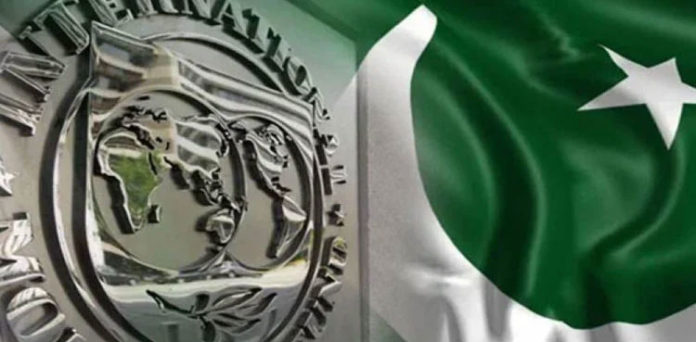In a pivotal move that will have far-reaching implications for Pakistan’s economic situation, the government is poised to ratify a substantial increase in natural gas charges just before the upcoming review of the International Monetary Fund (IMF) loan program.
This development has prompted a special meeting of the Economic Coordination Committee (ECC) to convene, where discussions will revolve around a remarkable 3,900 per cent surge in fixed monthly charges and a substantial 194 per cent hike in consumer rates for natural gas.
These proposed price adjustments, scheduled for cabinet ratification, aim to be implemented retroactively from October 1, throwing a spotlight on the urgency and gravity of the matter, as reported by Dawn.
These impending changes are part of the petroleum division’s strategy to shift towards a new gas pricing mechanism, one that mirrors the weighted average cost of local and imported gas (WACOG). This shift is intended to ensure that the actual cost of gas supply is accurately reflected, while also addressing the persistent issue of circular debt within the gas sector, which ballooned to a staggering Pakistan Rupee (PKR) 2.1 trillion as of this June, according to a summary submitted to the ECC.
However, an interesting point of contention is the reported figures regarding this circular debt. Caretaker Petroleum Minister Muhammad Ali, a former chairman of the corporate watchdog SECP, has cited the gas sector’s circular debt at a higher PKR 2.9 trillion during press conferences. Nevertheless, the summary he authorized for submission to the ECC also claimed that “price inaction until June 2024 will result in a revenue shortfall of PKR 185 billion on natural gas,” with an additional PKR 210 billion expected during the winter to divert liquefied natural gas (LNG) to domestic consumers, thus contributing to a combined addition of PKR 395 billion this fiscal year.
While a gas price hike with a specific deadline is not an explicit performance benchmark for the upcoming IMF loan review, it has become an inevitability given the lender’s stringent conditions. The IMF has insisted on no increase in subsidies and a prompt resolution of the circular debt during the current fiscal year, as failing to do so could potentially derail fiscal and primary account targets.
It’s important to note that while the petroleum division maintains it is not seeking an increase in gas rates for the “protected category” of consumers in the domestic sector, it has nonetheless proposed a substantial increase in fixed monthly charges for these categories. This proposal suggests raising fixed monthly charges from the current PKR 10 to PKR 400 per month.
“The average prescribed price of each molecule is PKR 1,291 per mmBtu (million British thermal units), but the protected category of domestic consumers is still paying a tariff of PKR 121 per mmBtu to PKR 250 per mmBtu in four consumption slabs,” the summary stated.
While there will be no increase in tariff for the protected category, which represents 57 per cent of domestic consumers, the proposed surge in fixed monthly charges will lead to a considerable increase in the average gas costs for these protected consumer slabs. The annual bills for these consumers are estimated to rise by up to 150 per cent, indicating a significant financial impact on a large portion of the population.
For non-protected residential consumers, the proposed gas rates would increase by 50 per cent to PKR 300 per mmBtu for consumption up to 0.25 hundred cubic meters (hcm), 100 per cent to PKR 600 per mmBtu for 0.6 hcm, and 150 per cent to PKR 1,000 for up to 1 hcm. The most substantial increase of 173 per cent is slated for consumption up to 3 hcm, raising prices to PKR 3,000 per mmBtu from the current PKR 1,100, according to Dawn.
The petroleum division argues that this tariff revision is essential to align the costs with those of liquefied petroleum gas (LPG) in order to curb unbridled consumption, urging those who can afford it to switch to alternate fuels and conserve natural gas.
Bulk consumption tariffs have been proposed to increase by 25 per cent from the current PKR 1,600 per mmBtu to PKR 2,000, while there will be no change in tariff for the special commercial category, such as tandoor roti establishments, which currently stands at PKR 697 per mmBtu.
The proposed tariff hikes for commercial consumers are substantial, including an increase of over 136 per cent to PKR 3,900 per mmBtu for commercial consumers, over 193 per cent and 144 per cent for cement factories and compressed natural gas (CNG) stations, respectively, raising rates to PKR 4,400. Export industries would see an 86 per cent increase to PKR 2,050 per mmBtu, and non-export industries would face a 117 per cent hike to PKR 2,600.
In conclusion, the government’s impending decision to ratify significant gas price increases carries significant economic and financial implications. The proposed changes are part of a broader strategy to address circular debt and align gas pricing with the cost of supply, while also encouraging more responsible consumption. These developments come ahead of the critical IMF loan program review, where adherence to stringent conditions is paramount to ensure the country’s fiscal stability

